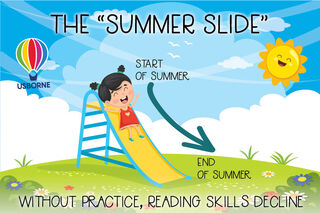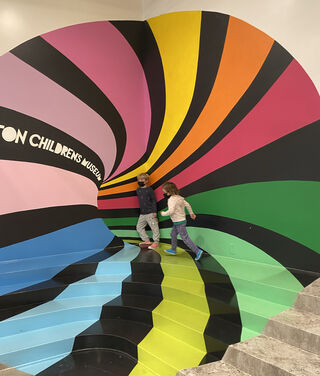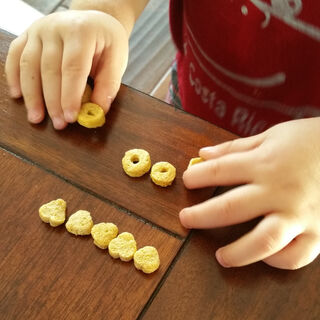Motivation
How to Avoid Kids’ Summer Learning Slides
Provide experiences that sustain and boost your children’s memories.
Posted June 21, 2022 Reviewed by Ekua Hagan
Key points
- Memory is strengthened by the brain's “neuroplasticity,” or the “use it or lose it” phenomenon of pruning unused memory circuits away.
- Connecting what kids learned in school to enjoyable, personally interesting summer experiences helps them retain the information.
- Guiding children to set desirable goals and recognize their progress helps them sustain their effort.
You can provide environments and experiences that sustain and boost your children’s memories of what they learned in school this year—things might otherwise be deleted from their memories due to disuse during the summer break.

What Is a Summer Slide?
Memory is strengthened by the brain's “neuroplasticity,” or the “use it or lose it” phenomena of pruning unused memory circuits away.
Frequently, the high pressures of school and demands of standardized tests are stressful to kids during the school year. The overwhelming pace of memorization and testing can interfere with their brains creating long-term memories of what they memorized for tests. They dedicated time and effort to memorizing those multiplication tables, punctuation rules, history facts, vocabulary words, and verb conjugations. Yet, it is not surprising that when the freedom of summer comes, and these forced and tested facts are not reviewed or used, kids’ brains delete these unreinforced factoids from memory.
This summer slide (deletion of memories of things learned) is actually the brain’s efficiency at work. It uses the brain’s limited energy resources to nourish all its memory networks. If ones are not used, the brain’s survival response is to prune them away. It is by active repetition, and use of things learned, that the brain keeps these networks strong and ready for being remembered and built upon the next school year.

Sustain and Boost Memories to Avoid Their Deletion
If you are like most of us, you’ve been through the travails of supervising, pushing, and arguing with kids about their school homework and required projects. These experiences become much more manageable, and even enjoyable when children experience and build their powers of goal planning and experience their successful achievement of goals.
You can sustain and boost school year learning when you connect what kids learned in school to enjoyable, personally interesting summer experiences. Summer can remain that magical place when there are no formal school classes and assignments. You can help them keep and build on what they learned. When you plan, share, and provide opportunities that activate their brain's memory networks with choices, the arts, projects, motivated use of reading/math, and awareness of their goal progress, then you reduce that summer slide.
Optimize Memories Through Progress Toward Desired Goals
You can easily and enjoyably activate children’s brains' joyful learning by providing choices, linking learning to their interests, guiding them to set desirable goals and recognize their goal progress.

Consider goals that are appropriate for your children and that would help them retain and expand the year’s learning. When they buy into desired goals, children have greater motivation to initiate and sustain the effort. Plan together what they would like to learn, do with what they learned, and what else they want to explore and know. Ask them what will make it fun as they build these skills and achieve their goals.
When starting on your plan, to help your children be successful at achieving goals, guide them to set goals that they consider worthy and valuable. Encourage them to tell you why they want to achieve the goals. Their motivation, personal gratification, and skills will follow. If they cannot think of a goal, you can encourage their selection of desirable goals about things they have already revealed interest in or new ones you think would captivate their interest.
The Motivating Power of Choice
Choice appeals to the brain’s natural curiosity and increases intrinsic goal motivation. Choice builds children’s sense of ownership, along with their skills of judgment and decision-making. Having choice also helps children diminish negativity about their academic potentials (and labels).

As you work to build your children’s general goal planning and achievement skills, with goals and projects they choose, you are a guide, not a director. Encourage them to talk through the tasks involved in their planning. Invite them to consider and tell you what parts of the goal achievement plan they predict might be especially challenging. Your interest and respect will build their self-confidence and positive relationship with you and with learning.
Reading as a Goal
To preserve and boost reading skills, visit libraries, used and new bookstores, book sales, and websites with your children to help reveal their interests and promote new ones.
What captures their attention as they browse the library or bookstore shelves? If she enjoyed books about certain topics or by specific authors in the past, ask the librarian for additional suggestions. If she has a favorite book or author, go to an online bookseller that makes suggestions based on one’s past purchases or designated preferences and look for suggested books that are like her favorites.
Inspire reading… don’t push it. You don’t finish all the books you start that don’t meet your needs and neither should your child. Do not force your child to finish every book he starts or quiz him on the contents of his recreational reading. Similarly, do not make a big deal about his rejecting a book he has chosen. You want to avoid discouraging him from picking up future books about which he is uncertain. When he speaks positively about a book, respond to the topic of conversation, rather than focus on the fact that he is reading. Ask him if to read a favorite paragraph or share a favorite chapter because you are interested in the topic.
Goal-Progress Awareness
Children’s awareness of their incremental progress toward their goals sustains the brain's satisfaction response. They often need guidance to recognize their ongoing progress. Work with them to help plan how they will monitor their progress points such as charts, graphs, stacks of blocks, or graphs that show progressive progress.
When the brain receives feedback that children’s efforts correlate with the progress made, it reinforces their perseverance to succeed. Consider ways to celebrate goal progress, e.g., put their name on a Post-it or index card they decorate and place on their bulletin board that says, “I reached my goals for today/this week, etc.”

Their increased skills will result in more satisfying reading, math, and other learning experiences. They will return to school ready to learn, instead of the usual need to catch up after the summer slump. Be cautious to avoid starting the process of boosting skills in a way that seems like unwelcome work not obviously related to their goals. The improvement in skills will be a side benefit, not a primary goal. That goal should be the pleasure that comes from the learning because it is relevant to their goals and interests, and your shared experiences.
Sustaining Motivated Effort
- Incorporate the arts. Children’s representations of information through art, music, performances, and writing can help the brain recognize underlying patterns in new information that construct stronger memories. Through artistic creation, performance, and interpretations, the small networks of isolated bits of memorized information can be incorporated into existing networks of related memory so they are retained rather than pruned away as soon as regular practice stops, as in the summer memory deletion.
- Enhance their optimism. The brain is wired for heightened interest and attentive focus when it foresees the pleasure of goal achievement. Those experiences activate the brain’s memorable, deeply satisfying, responses. If children's brains anticipate potential pleasure from achieving their goals, they will be more optimistic about the outcome and likely dedicate more effort to achieving them.
- Vividly imagine the future. A critical element in motivating children to set long-term goals is their desire to do so. Neuroimaging research data suggests that when people had more reminders about their desired goal, including visualizing the future with the goal achieved, they have more brain activity in their memory and decision-making networks with greater effort applied to achieving their goals.
Conclusion
Let your child know that you admire their desire to take action. Partner with them as they construct their plans for achieving their goals, but serve as a guide for their choices, not a director.
By enhancing their curiosity, optimism, and positive expectations, you will make a difference in sustaining your children's motivated effort in the school years and for ongoing opportunities awaiting them in the future. They will develop their desires to set and achieve higher goals for themselves now and throughout life.




